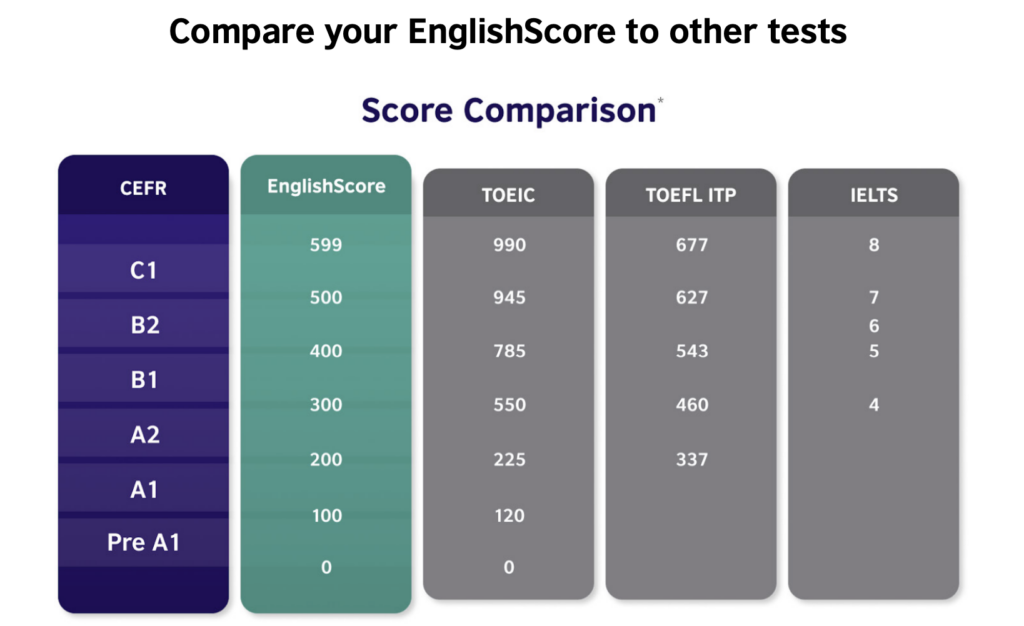Many education institutions use English language tests they’ve developed internally themselves, for their specific needs.
But English test design, development and delivery is a complex task, requiring specialist assessment knowledge and a rigorous ongoing testing and evaluation framework.
Internal testing also has a number of hidden time and monetary costs, often draining large amounts of resources from internal teams and faculty budgets.
Let’s look at three key limitations of internally developed assessments and how British Council EnglishScore can help universities navigate them.
The importance of validity and reliability
If an assessment isn’t valid (does the test measure what it claims to measure) or reliable (can it do that repeatedly without variation) then any test results will be meaningless. But creating both a valid and reliable test is a process that can take months or years to achieve.
It not only involves writing questions that fit the test specification but also trialling and testing those questions to ensure they work as expected – and doing it on an ongoing basis.
All this requires specialised expertise:
- Question writers with experience in developing items that work consistently for a global audience
- Trained and calibrated raters or powerful technology to score the test (productive skills in particular)
- Data analysts and statisticians to measure and monitor test performance
Inaccurate and unreliable internal English tests can have a considerable impact on the effectiveness of teaching and learning at a university, potentially limiting the academic performance of students and incurring further costs down the line. Recognised, digital assessments present a significant accuracy and reliability advantage over internal tests.
EnglishScore was developed by academic experts, in partnership with the Centre for Research in English Language Learning and Assessment (CRELLA) at the University of Bedfordshire, and has been extensively validated to ensure reliability.
The test results and item performance are constantly monitored, and the findings published in our validity reports. All this helps to ensure that EnglishScore results can be trusted as a true and accurate measure of someone’s English language ability.
The value of international recognition and standardisation
An internal test may serve the specific needs of a university, but it will lack recognition outside of that institution.
This is particularly true when it comes to preparing graduates for employment. It is unlikely that an employer or university would recognise an internally created English test as a measure of English ability.
Instead, they look for certificates and qualifications they know they can trust. EnglishScore is not only globally recognised, but is closely aligned to the Common European Framework of Reference (CEFR).

This is a standard for describing language proficiency used across the world, and test results are reported using both the EnglishScore scale as well as the CEFR scale.
This allows for easy comparison and benchmarking against global standards. Moreover, test takers can confidently use their test results to demonstrate their language proficiency in a variety of contexts, enhancing the value of the test for personal and professional development.
Universitas Surabaya, an EnglishScore Approved Partner, explains why being able to offer students an internationally recognised certificate is important.
Practicality and ease of implementation
Practicality covers a whole range of challenges – from securely producing, storing and transporting test materials, to reporting results and issuing certificates.
Other factors to consider are arranging test venues and the invigilators, training and monitoring a team of expert markers, and doing all of this to tight timelines. These logistical burdens also often limit the number of skills that can be tested. For example, many universities don’t test speaking skills because they lack the time, facilities and resources to do so.
EnglishScore simplifies the whole testing experience for our partners. It is a mobile-delivered four skills test, meaning it can be taken anywhere at any time, on the test taker’s own device.
A range of security features ensure the test results can be trusted and scoring is handled by EnglishScore using a mix of AI-powered technology and people. Results are then delivered back to the test as well as captured in our results dashboard, which allows institutions to view, filter and search for test results.
Final thoughts
Designing, developing and delivering an English language test takes specialist knowledge and time. For this reason, internally created tests often lack accuracy, come with hidden costs around delivery and scoring, and offer limited use outside the university or institution.
Switching to a recognised, digital assessment like EnglishScore is the future-proof option. Not only does it provide certifiable proof of English ability, but it also negates a lot of the logistical burden placed on language departments around English testing, saving the faculty time and money from the outset.


